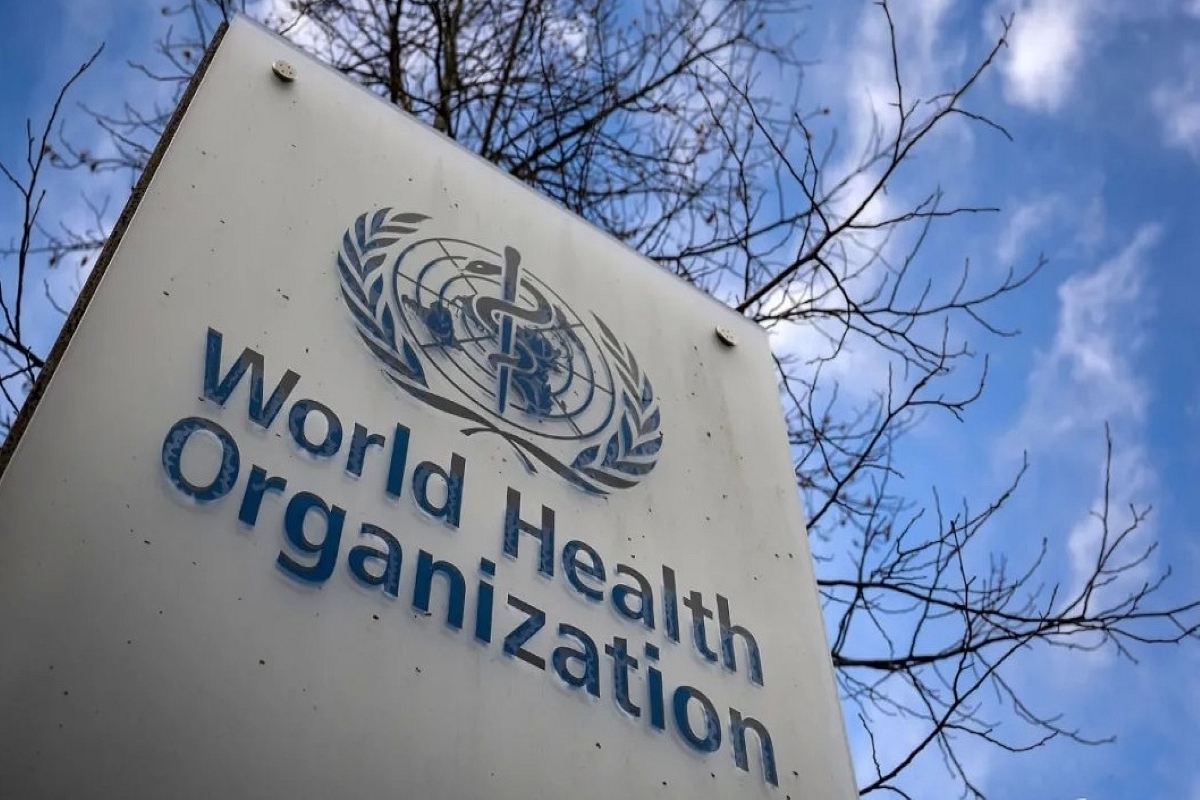World
Someone Duplicated Cough Syrup To Defame Indian Govt: MD Of Punjab-Based Pharma Firm After WHO Issues 'Product Alert'

World Health Organisation. (Representative image).
After WHO's product alert over India-made cough syrup in Marshal Islands and Micronesia, QP Pharma MD Sudhir Pathak has alleged that the syrup was "duplicated" by someone to defame the Indian government.
The global health body has issued a medical product alert after "Substandard (contaminated)" Guaifenesin Syrup TG Syrup in the Marshall Islands and Micronesia.
The "stated manufacturer" of the affected product is QP Pharma Chem in Punjab and the "stated marketer" of the product is Trillium Pharma in Haryana, the WHO said.
Sudhir Pathak, MD of the Punjab-based QP Pharma, stated that the state FDA suspects that the cough syrup product sent to Cambodia was duplicated by someone and sold in the Marshall Islands and Micronesia to tarnish the image of the Indian government.
"Food And Drug Administration (FDA) of Punjab doubt that someone has duplicated the product (cough syrup) sent to Cambodia and then sold it in the Marshall Islands and Micronesia to defame the Government of India," said Sudhir Pathak, MD of the firm based in Dera Bassi, Punjab, reports ANI.
According to Pathak, the FDA department had collected samples of the cough syrup, that were sent to Cambodia.
"The FDA department has taken samples of cough syrup sent to Cambodia for testing. A total of 18,336 bottles of cough syrup were sent," he said.
According to the WHO, samples of the Guaifenesin SRUP TG Syrup from the Marshall Islands were analysed by quality control laboratories of the Therapeutic Goods Administration (TGA) of Australia.
"The analysis found that the product contained unacceptable amounts of diethylene glycol and ethylene glycol as contaminants," the WHO said.
Diethylene glycol and ethylene glycol are toxic to humans when consumed and can prove fatal, it added.
"To date, neither the stated manufacturer nor the marketer have provided guarantees to WHO on the safety and quality of these products," the global health body said.
Support Swarajya's 50 Ground Reports Project & Sponsor A Story
Every general election Swarajya does a 50 ground reports project.
Aimed only at serious readers and those who appreciate the nuances of political undercurrents, the project provides a sense of India's electoral landscape. As you know, these reports are produced after considerable investment of travel, time and effort on the ground.
This time too we've kicked off the project in style and have covered over 30 constituencies already. If you're someone who appreciates such work and have enjoyed our coverage please consider sponsoring a ground report for just Rs 2999 to Rs 19,999 - it goes a long way in helping us produce more quality reportage.
You can also back this project by becoming a subscriber for as little as Rs 999 - so do click on this links and choose a plan that suits you and back us.
Click below to contribute.
Latest